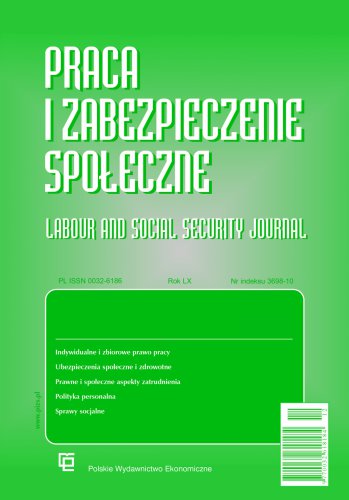Labour and Social Security Journal 06/2023
ISSN: 0032-6186
Pages: 68
Publication date: 2023
Place publication: Warszawa
Binding: paperback
Format: A4
Publication date: 2023
Place publication: Warszawa
Binding: paperback
Format: A4
DOI: 10.33226/0032-6186.2023.6.2
JEL: K31
DOI: 10.33226/0032-6186.2023.6.3
JEL: K31
DOI: 10.33226/0032-6186.2023.6.4
JEL: K31
DOI: 10.33226/0032-6186.2023.6.5
JEL: K31
DOI: 10.33226/0032-6186.2023.6.6
JEL: K31
DOI: 10.33226/0032-6186.2023.6.7
JEL: K31; K33; K38; J83
DOI: 10.33226/0032-6186.2023.6.8
JEL: K31
DOI: 10.33226/0032-6186.2023.6.9
| Odbiór osobisty | 0 € |
| Kurier Inpost | 4 € |
| Kurier FedEX | 4 € |
| Inpost Paczkomaty | 4 € |
| Free delivery in Reader's Club | from 47 € |

